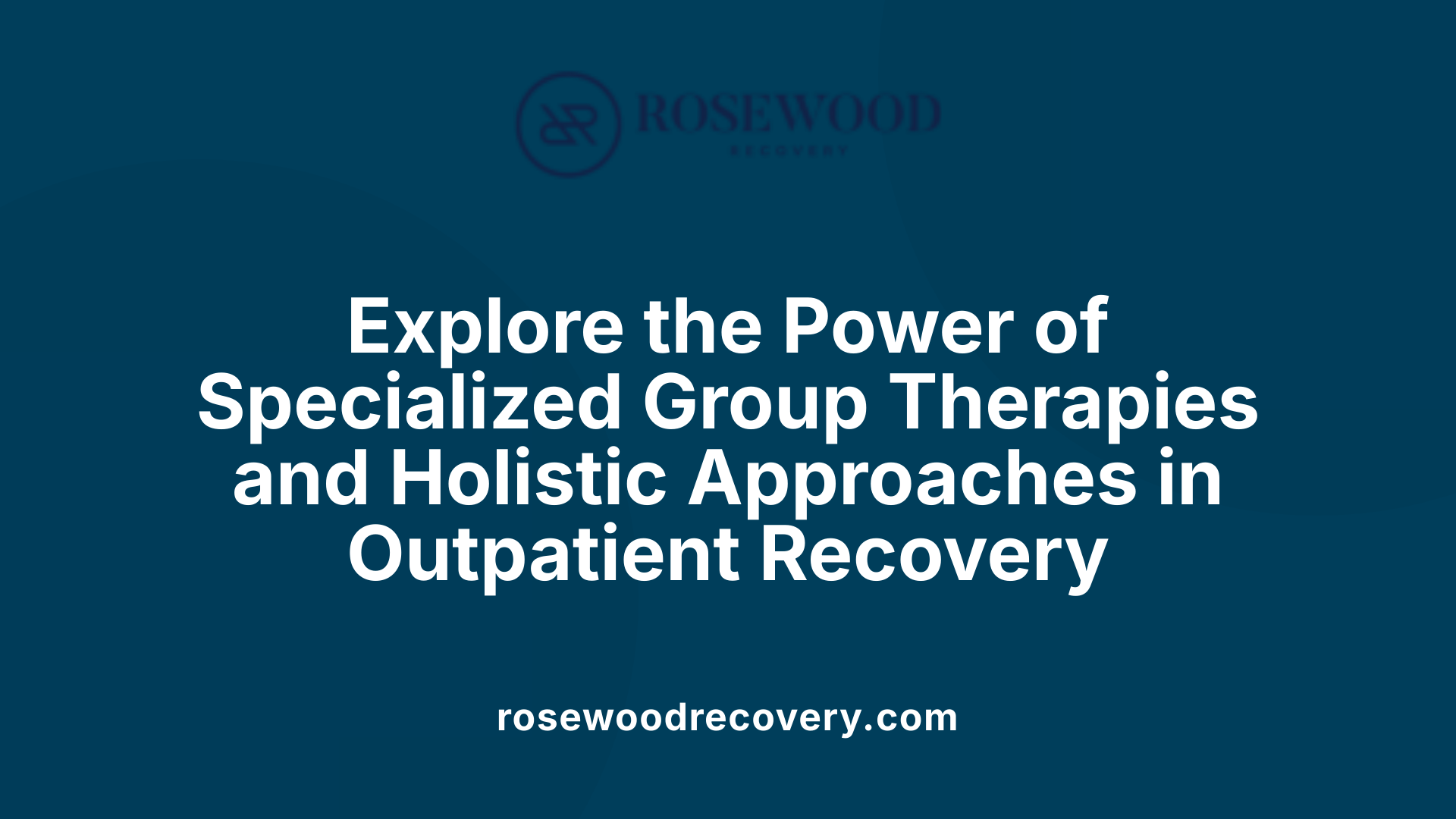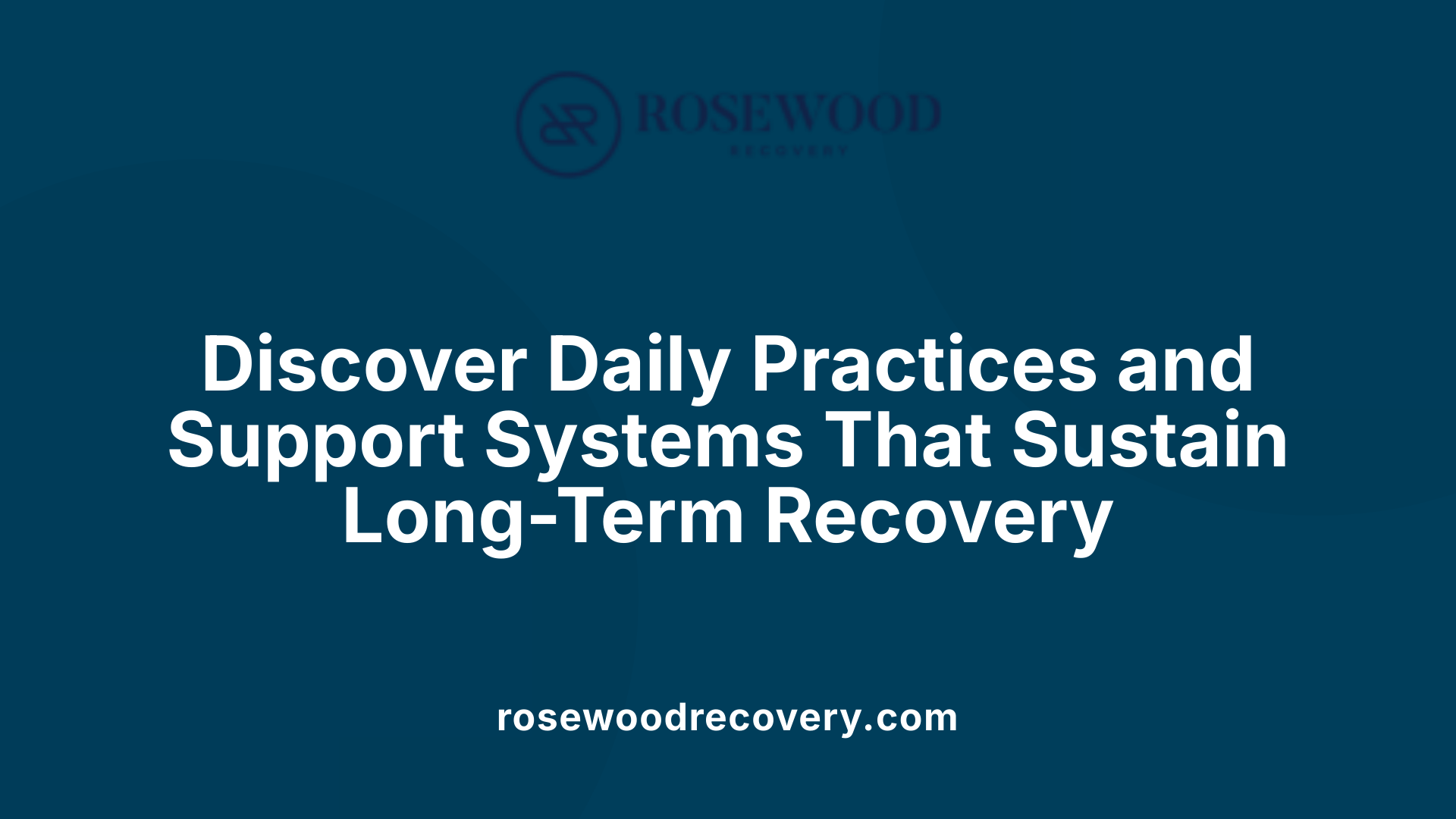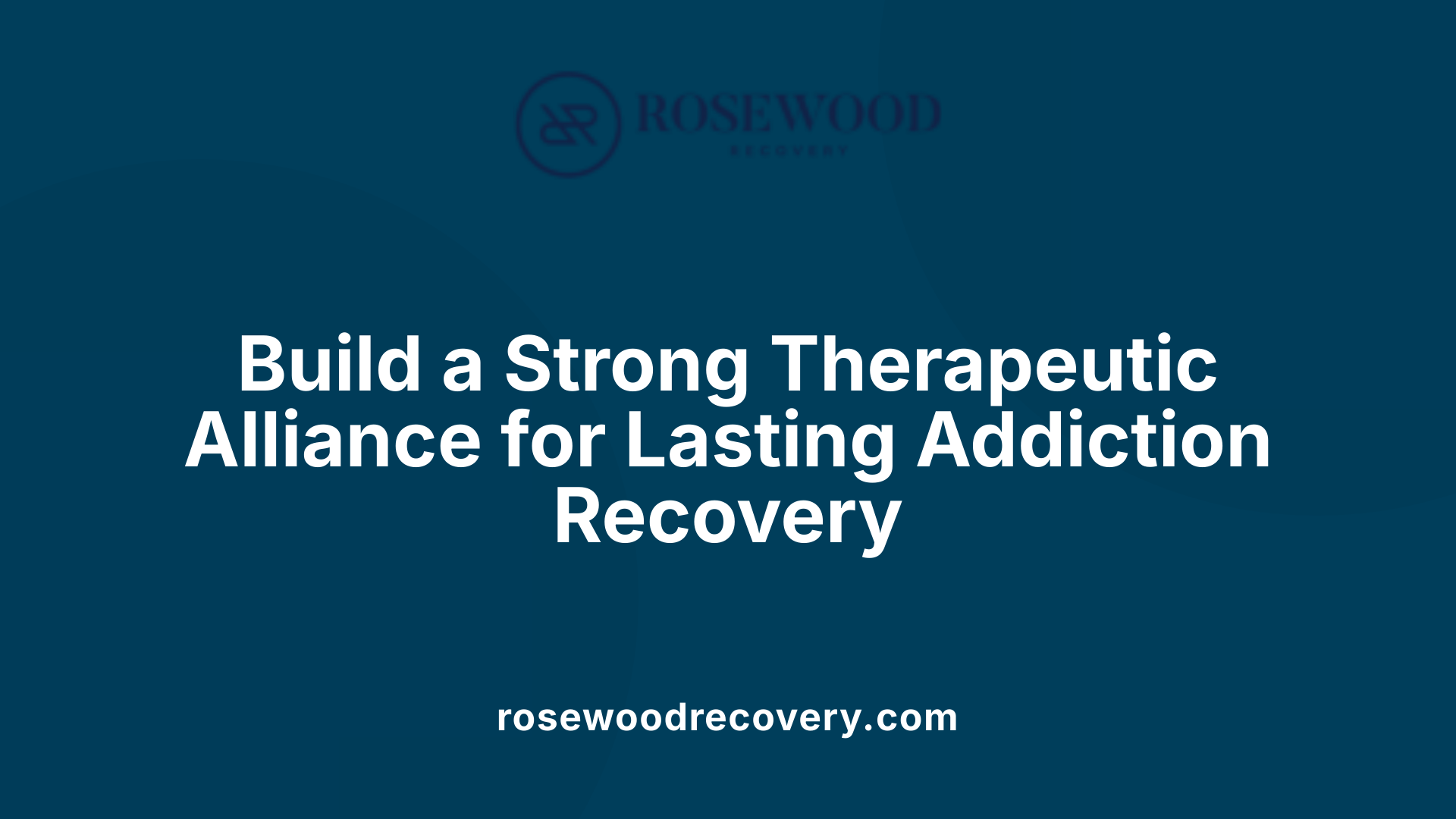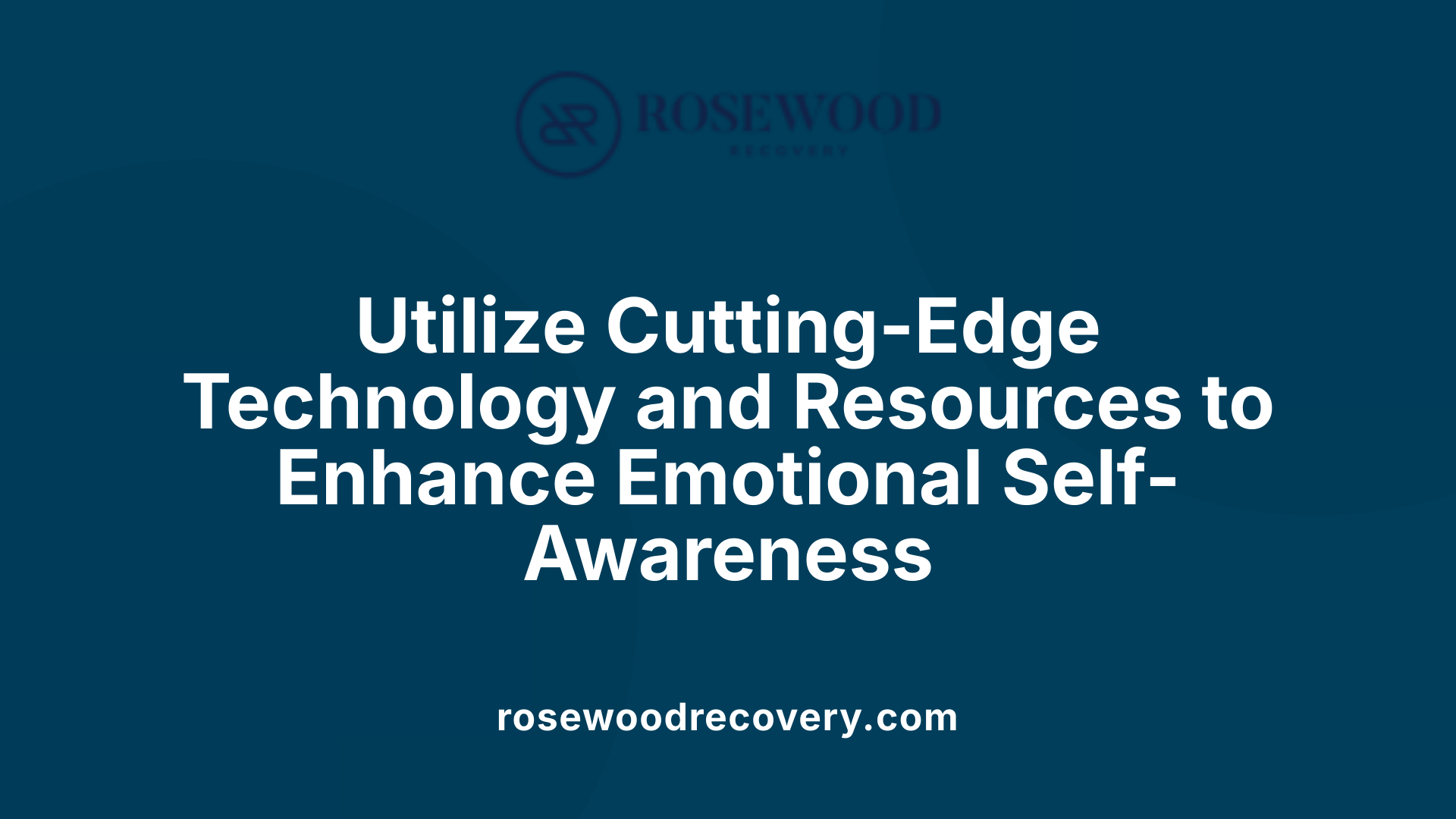Understanding the Role of Outpatient Therapy in Addiction Recovery
Emotional self-awareness is a cornerstone of successful recovery from substance use disorders and other addictive behaviors. Outpatient therapy offers a structured yet flexible environment where individuals can rebuild their understanding of emotions, triggers, and behaviors while maintaining their daily responsibilities. This article explores the comprehensive nature of outpatient treatment services and their critical role in fostering emotional self-awareness among those wrestling with addiction and mental health challenges.
Comprehensive Treatment Services for Substance Abuse and Mental Health
What are the comprehensive treatment services available for substance abuse and mental health issues?
Comprehensive treatment for substance abuse and mental health conditions involves a multifaceted approach designed to address physical, psychological, and social aspects of recovery. Core services include detoxification, which safely manages withdrawal symptoms to prepare individuals for further treatment stages.
Therapy options are available in settings ranging from inpatient (residential care) to outpatient programs, catering to the severity of the disorder and personal circumstances. Inpatient therapy provides intensive, round-the-clock support, while outpatient therapy offers flexibility allowing individuals to maintain daily life routines.
Medication management plays a critical role, using FDA-approved medications like methadone, buprenorphine, naltrexone, and acamprosate to ease cravings and withdrawal symptoms. This is coupled with behavioral counseling such as cognitive-behavioral therapy (CBT), motivational interviewing, and family therapy to strengthen relapse prevention and improve coping strategies.
Support groups—such as 12-step programs and peer-led recovery meetings—offer ongoing emotional and practical support, fostering a sense of community and accountability.
Aftercare planning is essential to maintain gains from treatment, involving continued therapy, support groups, and skill development to prevent relapse and promote long-term stability.
Specialized programs cater to particular needs, including intensive outpatient programs (IOPs), partial hospitalization programs (PHPs), culturally specific interventions, and holistic approaches integrating art therapy, yoga, and mindfulness.
With advances in technology, telehealth services expand access to behavioral health care, providing remote counseling and medication management, which is invaluable for those facing geographic or mobility barriers.
Insurance often covers many treatment modalities, including inpatient and outpatient care, medication, and preventive services, enhancing affordability. Resources such as FindTreatment.gov, maintained by SAMHSA, offer comprehensive, up-to-date directories of available treatment facilities and programs across the United States.
Immediate crisis support is accessible through helplines like the 988 Suicide & Crisis Lifeline or 1-800-662-HELP (4357), ensuring rapid assistance in urgent mental health or addiction emergencies.
Together, these services form an integrated network aimed at providing personalized, effective care for individuals battling substance use and mental health disorders, maximizing their chances for sustained recovery.
Addressing Diverse Addictions Through Tailored Treatment
How do treatment services address various forms of addiction?
Treatment services adopt a personalized approach tailored to the unique needs of each individual struggling with addiction. This approach integrates various evidence-based behavioral therapies including cognitive-behavioral therapy (CBT) and dialectical behavior therapy (DBT) to help clients develop essential coping skills, improve emotional regulation, and enhance self-awareness.
Medications play a crucial role in treating certain addictions, particularly opioid and alcohol use disorders. Medication-assisted treatment (MAT) uses FDA-approved drugs such as methadone, buprenorphine, naltrexone, acamprosate, and disulfiram. These medications help manage withdrawal symptoms, reduce cravings, and lower relapse rates.
Family involvement is emphasized to provide emotional support, improve communication, and address addiction as a family disease. Family therapy sessions and psychoeducational groups often help in creating a supportive environment that bolsters recovery.
Peer support groups, like 12-step programs including Alcoholics Anonymous and Narcotics Anonymous, offer accountability, emotional connection, and shared experiences crucial for sustained sobriety.
Treatment settings vary to match the severity of addiction and individual circumstances. Outpatient programs suit those with mild to moderate addiction who need flexible care, while inpatient and residential programs provide intensive support for severe cases, often including detoxification and around-the-clock supervision.
Holistic therapies complement traditional treatment by addressing physical, psychological, and social aspects. These include art and music therapy, yoga, meditation, acupuncture, biofeedback, and adventure therapy. Such approaches help foster overall well-being, emotional balance, and trauma recovery.
By combining individualized behavioral therapies, medication, family and peer support, diverse treatment settings, and holistic recovery methods, treatment services comprehensively address the complex nature of addictions for long-term success.
Outpatient Therapy: A Flexible Framework for Recovery
Who is suitable for outpatient substance abuse treatment?
Outpatient treatment is ideal for individuals experiencing mild to moderate substance use disorders who have stable living conditions and supportive home environments. It allows clients to live at home while attending therapy sessions and participating in treatment programs, providing flexibility and minimizing disruption to daily life.
What are the main components of outpatient programs?
Outpatient programs combine several therapeutic and support elements tailored to individual needs. These typically include psychodynamic therapy, addiction education, relapse prevention strategies, participation in 12-step and alternative recovery programs, and medication-assisted treatment (MAT).
How does psychodynamic therapy contribute to outpatient treatment?
Psychodynamic therapy focuses on uncovering and resolving unconscious emotional conflicts that may contribute to substance use. It helps clients understand the underlying psychological patterns influencing their behavior, fostering insight and emotional growth essential to lasting recovery.
What role does addiction education play?
Addiction education informs clients about the behavioral, medical, and psychological impacts of substance abuse. Understanding addiction as a chronic disease improves motivation for change and empowers clients and their families to actively engage in the recovery process.
How does relapse prevention work in outpatient settings?
Relapse prevention groups help individuals identify high-risk situations, develop coping skills, and practice problem-solving through structured activities. These groups aim to maintain sobriety by preparing clients to anticipate and manage potential triggers effectively.
What are the twelve-step and alternative recovery programs offered?
Outpatient treatment often encourages involvement in 12-step groups like Alcoholics Anonymous or Narcotics Anonymous, which provide community support and accountability. Alternatives such as SMART Recovery and Refuge Recovery are also integrated, offering approaches aligned with clients' beliefs and preferences.
How is medication-assisted treatment integrated into outpatient care?
MAT uses FDA-approved medications—including methadone, buprenorphine, naltrexone, acamprosate, and disulfiram—to address cravings and withdrawal symptoms. These medications are combined with counseling and behavioral therapies to support sustainable recovery without requiring inpatient stays.
Outpatient programs emphasize comprehensive care, addressing physical detoxification, psychological therapy, and social reintegration, while leveraging family support and accessible resources to promote long-term sobriety.
Rebuilding Emotional Self-Awareness Through Behavioral Therapies
What Is Cognitive-Behavioral Therapy (CBT) and How Does It Help?
Cognitive-behavioral therapy (CBT) is a widely used behavioral therapy that focuses on identifying and changing negative thought patterns and behaviors. In addiction treatment, CBT helps individuals recognize harmful beliefs and triggers related to substance use, enabling them to develop healthier coping strategies.
How Does Dialectical Behavior Therapy (DBT) Support Emotional Regulation?
DBT complements CBT by emphasizing skills for managing strong emotions and improving interpersonal relationships. It teaches patients techniques like mindfulness and distress tolerance, which are vital for regulating emotions that often contribute to substance cravings and relapse.
What Role Do These Therapies Play in Changing Negative Thoughts and Behaviors?
Both CBT and DBT guide individuals to become more self-aware of their emotional responses and behavioral impulses. By restructuring their thinking and learning practical skills, patients can break the cycle of addiction, replacing destructive habits with positive behaviors.
How Do These Therapies Contribute to Relapse Prevention?
Relapse prevention is a critical component of behavioral therapies. CBT and DBT equip clients with tools to anticipate high-risk situations and effectively manage urges or cravings. With improved emotional regulation and problem-solving skills, individuals maintain sobriety and build resilience against relapse.
Behavioral therapies thus serve as foundational approaches for rebuilding emotional self-awareness in people recovering from substance use disorder, fostering lasting change and recovery.
The Role of Mindfulness and Journaling in Emotional Insight
Mindfulness Practices Like Breath Awareness and Body Scanning
Mindfulness is an essential tool in outpatient addiction therapy that helps individuals stay present and gain clearer emotional insight. Breath awareness trains clients to focus on their breathing patterns, fostering calmness and reducing anxiety. Body scanning encourages noticing sensations throughout the body, helping identify areas of tension or discomfort related to emotional triggers.
Walking Meditation
Walking meditation combines gentle physical activity with mindfulness, enabling individuals to connect mind and body outside of a therapy setting. This practice promotes relaxation and encourages reflection on thoughts and feelings as they arise without judgment.
Journaling for Emotional Processing and Trigger Identification
Journaling offers a structured outlet for clients to process emotions and recognize patterns influencing substance use. Writing daily allows for introspection that supports emotional regulation and decision-making.
Daily Mood Check-Ins and Gratitude Notes
Incorporating daily mood check-ins into journaling routines helps patients monitor fluctuations in emotions over time, identifying triggers or vulnerable periods early. Gratitude notes focus attention on positive experiences, enhancing emotional balance and resilience during recovery.
Behavior Tracking
Behavior tracking charts important actions, urges, or relapse signs, enabling clients and therapists to identify risk factors and progress systematically. This strategy supports tailored relapse prevention plans and encourages accountability.
Together, mindfulness and journaling cultivate self-awareness, promoting emotional insight that empowers individuals to manage cravings and sustain recovery effectively.
Overcoming Barriers to Accessing Outpatient Treatment
What Are the Common Barriers to Accessing Outpatient Treatment?
Accessing outpatient treatment for substance use disorder can be challenging due to several barriers. One widespread obstacle is stigma, where negative perceptions about addiction discourage individuals from seeking help. Insurance challenges also pose difficulties, as navigating coverage policies or lack of insurance limits affordable treatment options.
Geographical barriers affect those living far from treatment centers, making regular attendance tough. Financial constraints further prevent many from affording necessary care despite available programs. Additionally, cultural and linguistic differences can create misunderstandings or discomfort in treatment settings not tailored to diverse populations.
How Can These Barriers Be Addressed?
Efforts to overcome these challenges involve multiple strategies. Public education campaigns help dispel stigma by raising awareness about addiction as a chronic disease, encouraging more people to engage with treatment.
Insurance reforms aim to improve coverage for addiction services, expanding affordable access. Telehealth services have become a crucial solution, especially for those hindered by location or mobility issues, by providing remote therapy and support.
Financial assistance programs reduce cost burdens, enabling sustained treatment engagement. Culturally sensitive interventions include employing multilingual staff and integrating healing practices aligned with clients’ cultural backgrounds to improve comfort and effectiveness.
These combined approaches work to create a more inclusive, accessible outpatient treatment landscape, offering hope and support to individuals on their recovery journey.
The Importance of Family Involvement in Outpatient Recovery
Family Emotional Support
Family involvement plays a critical role in outpatient substance abuse recovery by providing emotional support that promotes healing and stability. Loved ones offer encouragement, reduce feelings of isolation, and help individuals feel valued during the challenging recovery process.
Treatment Engagement
Active family participation helps increase treatment engagement. When families understand the nature of substance use disorders and the recovery journey, they can encourage continued participation in therapy and medication-assisted treatments (MAT), thereby improving overall outcomes.
Creating Supportive Environments
A nurturing home environment is essential for sustained recovery. Family members can create a space free from substance use triggers, reinforcing healthy routines and positive behavioral changes that support abstinence and long-term sobriety.
Setting Boundaries
Setting clear, healthy boundaries within family relationships helps prevent enabling behaviors and promotes accountability. Boundaries protect both the recovering individual and family members, supporting respectful communication and reducing stress.
Family Therapy
Family therapy is often integrated into outpatient programs to address dysfunctional relational patterns and foster mutual understanding of addiction as a family disease. These sessions improve communication, resolve conflicts, and strengthen interpersonal bonds crucial for recovery success.
Celebrating Milestones
Recognizing and celebrating recovery milestones with family amplifies motivation for continued progress. Celebrations create positive reinforcement, enhance self-esteem, and remind individuals that their efforts are appreciated and supported by those closest to them.
Together, these family involvement components form a supportive network that reinforces outpatient treatment efforts, making recovery more sustainable and meaningful.
Specialized Groups and Holistic Therapies in Outpatient Settings

What Types of Specialized Group Therapies Are Used in Outpatient Substance Abuse Treatment?
Outpatient programs often incorporate specialized group therapies tailored to meet diverse needs. These include:
Psychoeducational Groups: Educate clients about the behavioral, medical, and psychological consequences of substance use. They help motivate recovery and increase family understanding.
Skills Development Groups: Focus on building essential skills for abstinence, such as resisting drug offers, managing cravings, and coping with emotions, often using cognitive-behavioral frameworks.
Support Groups: Offer emotional and practical support throughout recovery stages, emphasizing acceptance and interpersonal connection.
Interpersonal Process Groups: Aim to modify dysfunctional relational patterns among members through psychodynamic methods, enhancing relational skills.
Culturally Specific Groups: Use culturally grounded healing practices and values, providing a supportive environment tailored to particular cultural backgrounds.
Expressive Therapy Groups: Utilize creative activities such as art, music, dance, and psychodrama to facilitate emotional expression and trauma resolution.
How Are Holistic Therapies Integrated Into Outpatient Treatment?
Complementing traditional therapies, outpatient programs frequently offer holistic therapies to support emotional awareness and physical well-being. Some common approaches include:
Art Therapy: Encourages creative expression to process emotions and trauma in non-verbal ways.
Yoga and Meditation: Promote relaxation, mindfulness, and emotional balance, helping patients stay present and regulate stress.
Mindfulness Practices: Techniques like breath awareness, body scanning, and walking meditation aid clients in observing thoughts and feelings without judgment.
These therapies contribute to self-regulation, reduce relapse risk, and enhance overall recovery.
Why Are These Specialized and Holistic Approaches Important?
Specialized group therapies and holistic treatments address various aspects of addiction—from cognitive and behavioral challenges to emotional and cultural needs. Together, they offer a comprehensive outpatient treatment experience that fosters motivation, skills development, emotional healing, and social connection, increasing the likelihood of sustained recovery.
Maintaining Long-Term Recovery: Support Systems and Daily Practices

The Role of Professional Therapy in Sustaining Recovery
Professional therapy remains essential for long-term recovery from substance use disorder. Therapists provide ongoing support, help individuals navigate relapse risks, and foster emotional self-awareness. Therapeutic approaches like Cognitive Behavioral Therapy (CBT) and Dialectical Behavior Therapy (DBT) focus on managing triggers and regulating emotions, building skills essential for sustained sobriety.
Peer Groups and Structured Recovery Programs
Participation in peer support groups such as 12-step programs or Narcotics Anonymous offers invaluable communal support and accountability. Structured recovery programs provide consistent environments where individuals can share experiences and develop coping strategies tailored to their stage of recovery. These support networks create strong interpersonal connections that bolster resilience.
Daily Self-Check Habits to Boost Emotional Awareness
Incorporating daily habits such as meditation, emotional tracking, and journaling aids in maintaining ongoing self-awareness. Meditation practices like breath awareness and body scanning help individuals stay present and observe their thoughts without judgment. Emotional tracking enables recognizing patterns in feelings and behaviors, while journaling supports reflection on daily moods, gratitude, and potential triggers.
Building Self-Compassion in Recovery
Developing self-compassion assists in overcoming common obstacles such as denial, emotional struggles, and self-judgment. Through self-assessment and emotional journaling, individuals learn to embrace their experiences with kindness and patience, which promotes psychological healing and reduces relapse risk.
Integration of Practices
Together, professional therapy, active involvement in peer and structured programs, and daily self-check routines form a comprehensive network underpinning long-term recovery. This multifaceted approach encourages continuous growth, emotional regulation, and resilience against relapse.
Therapeutic Alliance: The Foundation of Successful Outpatient Recovery

Individualized Treatment and Its Importance
Outpatient substance abuse treatment is most effective when tailored to the individual needs of the patient. This personalized approach considers the severity of substance use disorder, mental health status, and social circumstances to design a recovery plan. Such individualization ensures patients receive the most appropriate therapies, medications, and support systems necessary for sustained recovery.
Building a Strong Therapeutic Alliance
The therapeutic alliance—the collaborative relationship between patient and therapist—is a crucial element in outpatient addiction treatment. Trust and mutual engagement between both parties create a safe environment where patients feel understood and motivated to participate actively in their recovery. This alliance fosters open communication and honest disclosure about challenges and progress.
Tailoring Approaches to Client Readiness
Effective treatment respects where clients are in the stages of change—from precontemplation to maintenance. Therapists employ strategies suited to each stage, helping patients move forward without feeling pressured. This client-centered flexibility helps maintain engagement and reduces dropout rates.
The Role of Trust and Engagement
Trust between patient and therapist enhances treatment adherence by encouraging patients to face difficult emotions and behaviors. Engaged patients are more likely to complete treatment modules, participate in group therapies, and commit to medication regimens or behavioral therapies like cognitive-behavioral therapy (CBT).
Impact on Outcomes
Research shows that a strong therapeutic alliance significantly predicts positive treatment outcomes, including reduced substance use, higher retention rates, and improved mental health. By fostering motivation and providing emotional support, the alliance acts as a foundation upon which the multifaceted elements of outpatient treatment can succeed.
Technology and Resources Supporting Emotional Self-Awareness in Outpatient Care

FindTreatment.gov Platform
FindTreatment.gov is a government-funded, authoritative resource maintained by SAMHSA that supports individuals with substance use disorders by providing comprehensive and up-to-date information on treatment options. This platform offers an extensive national database of treatment facilities, which is updated regularly to ensure accuracy. It helps users identify outpatient programs tailored to their needs, including those offering medication-assisted treatment (MAT).
Helpline Resources
Accessible helplines enhance immediate support and intervention options. These include the 988 Suicide & Crisis Lifeline, 1-800-662-HELP (4357), and the disaster distress helpline. Such resources provide critical emotional support, crisis management, and guidance in finding treatment, which complements outpatient care and emotional self-awareness efforts.
Tools for Opioid Treatment and Medication-Assisted Treatment
The platform also provides tools that specifically help locate buprenorphine practitioners and opioid treatment programs. These tools facilitate connections with providers for MAT medications such as methadone, buprenorphine, and naltrexone, essential for helping individuals manage cravings and withdrawal symptoms effectively as part of outpatient recovery.
Telehealth Services
Telehealth has become increasingly vital in overcoming barriers to treatment access, such as geographical limitations and transportation difficulties. It enables virtual therapy sessions, counseling, and psychiatric evaluations, ensuring continuity of care. This technology supports emotional self-awareness by providing flexible and consistent access to behavioral therapies like CBT and motivational interviewing remotely.
Digital Tools for Emotional Tracking and Self-Awareness
Various apps and digital platforms assist clients in monitoring moods, identifying triggers, and practicing mindfulness. Features such as journaling prompts, daily self-checks, and guided meditation exercises help enhance emotional regulation. These tools empower individuals to stay present and aware of their thoughts and feelings, crucial for relapse prevention and maintaining long-term recovery in outpatient settings.
Fostering Emotional Self-Awareness for Lasting Recovery
Outpatient therapy serves as a vital vehicle for individuals seeking to rebuild emotional self-awareness on their journey through addiction recovery. Through a comprehensive blend of evidence-based therapies, holistic practices, family involvement, and robust support systems, outpatient programs provide personalized care that addresses the complex interplay of emotional, psychological, and social factors. By overcoming barriers to access and leveraging modern resources, these therapies empower individuals to recognize triggers, regulate emotions, and maintain sobriety with resilience. Ultimately, fostering emotional self-awareness in outpatient settings not only supports sustained recovery but lays the foundation for a healthier, more fulfilling life beyond addiction.
References
- Substance Use Disorder (SUD): Symptoms & Treatment
- 2 Types of Groups Commonly Used in Substance Abuse ...
- Outpatient Substance Abuse Treatment for Recovery
- FindTreatment.gov: Home
- Therapy For Substance Abuse Treatment
- Ultimate Guide to Self-Awareness in Recovery
- Therapy For Addiction Recovery
- Addiction Treatment Methods | Evidence-Based Practices
- Treatment | National Institute on Drug Abuse (NIDA)




